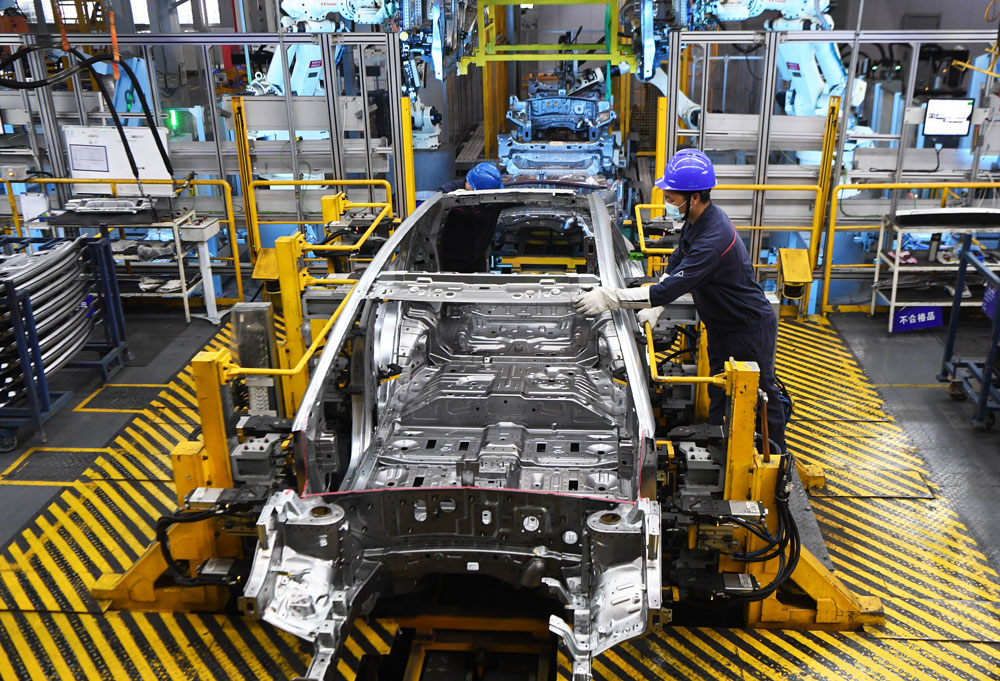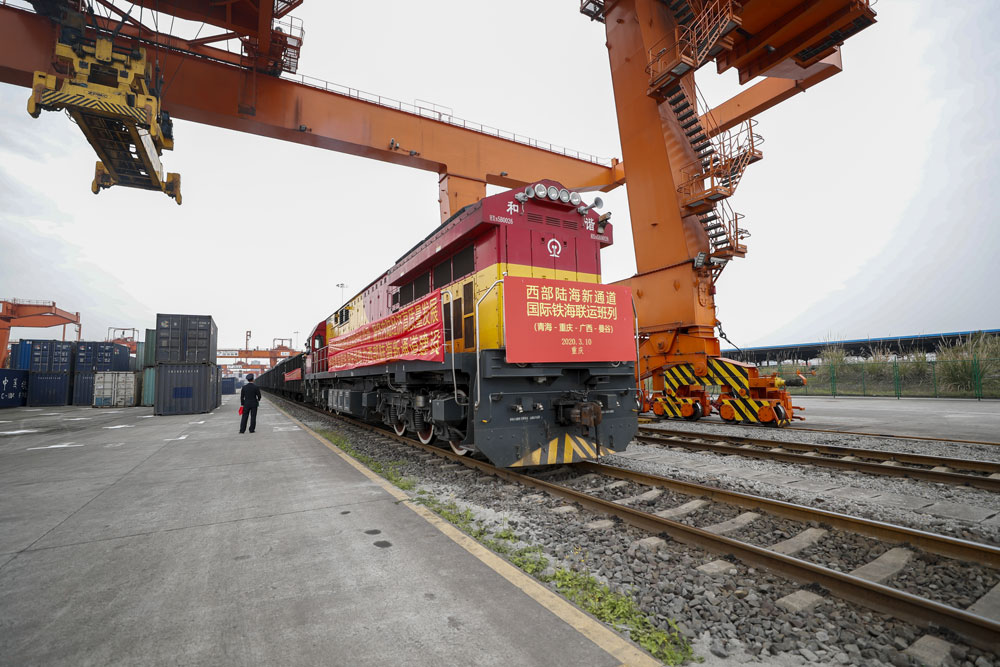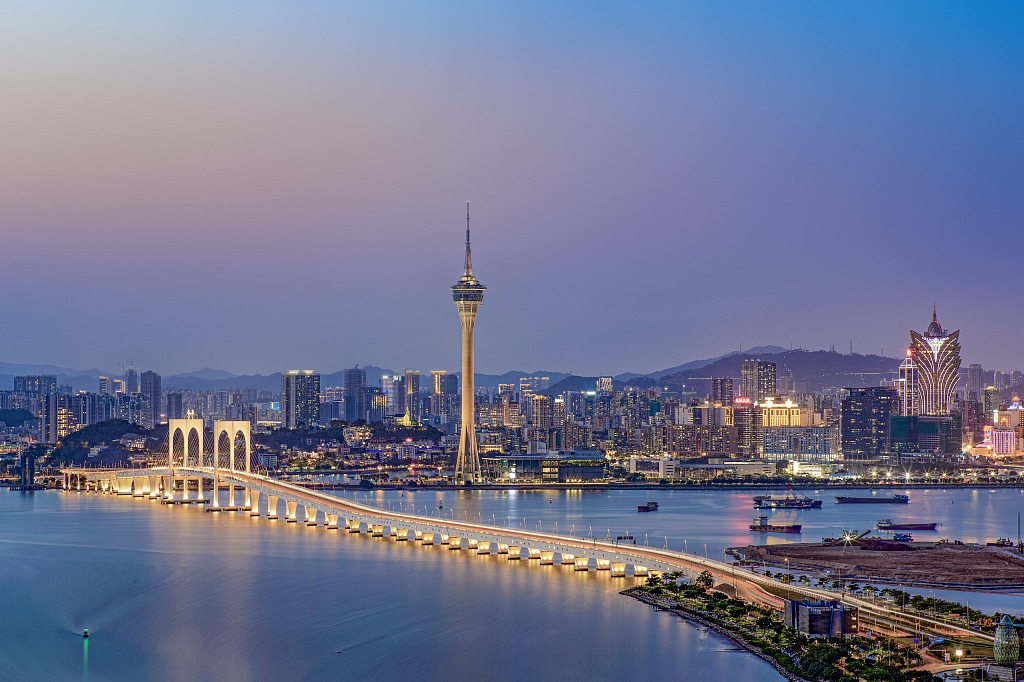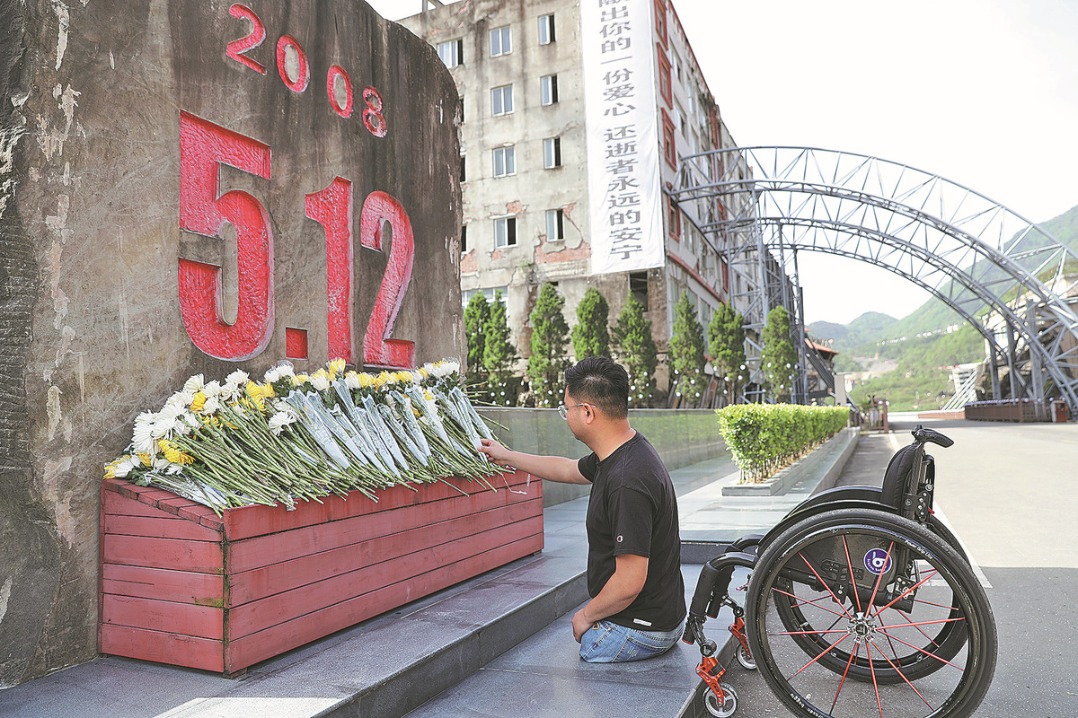Chongqing sets sights firmly on future
By WANG HAO, CHEN ZHIMING, TAN YINGZI and CHENG YU in Chongqing | CHINA DAILY | Updated: 2021-01-19 07:22

Deeper integration
Chen Min'er, Chongqing's Party chief, said, "In coming years, the city will deepen its integration with the BRI and construction of the New International Land-Sea Trade Corridor to speed up the building of a highland area for opening-up."
The new corridor, a trade and logistics route, was jointly launched by western provinces and regions in China and by Singapore as part of the China-Singapore (Chongqing) Demonstration Initiative on Strategic Connectivity, or Chongqing Connectivity Initiative.
In the first half of last year, nearly 390 land-sea international trips were made along the route, with 1,966 journeys completed since the official opening in September 2017 to June last year.
"Chongqing will also promote construction of the Chengdu-Chongqing economic cycle and take the opportunity to build the city (Chongqing) into an important economic center with national influence, a scientific and technological innovation center, a new highland area for reform and opening-up, and a high-quality place to live," Chen said.
The Chengdu-Chongqing economic cycle, proposed at a meeting of the Political Bureau of the Communist Party of China Central Committee in October, aims to make the municipality and Chengdu, capital of Sichuan province, western China's new growth engines.
Bai Ming, deputy director of the Academy of International Trade and Economic Cooperation at the Ministry of Commerce, said: "Compared with other economic super-regions, like Beijing-Tianjin-Hebei, the Yangtze River Delta and the Guangdong-Hong Kong-Macao Greater Bay Area, the Chengdu-Chongqing economic cycle's advantages lie not in size or scale, but in industrial diversity. It will greatly improve equality in regional development and promote structural change."
Huang Chaoyong, under-secretary-general of the CPC Chongqing Municipal Committee, said the aim is for Liangjiang New Area to become "a smart hub for Chongqing and an open gateway to inland regions", and also "a high-quality development area and high-quality living space".
"More efforts will be made to build a modern industrial cluster to drive high-end, high-quality and high-tech industries and to raise the level of openness to accommodate global high-end resources," said Huang, quoting a new guideline published by the local government on Friday.
He said that by 2025, innovation and entrepreneurship will be fully stimulated, the area will lead western regions with its openness, and the level of intelligent governance will be significantly improved. In particular, a number of modern industrial clusters with influence at national level will be formed and the area's GDP will exceed 500 billion yuan ($72 billion) by that year, he added.

To drive new growth engines, Liangjiang New Area has been preparing to develop scientific innovation and to accelerate strategic industries, including the digital economy, intelligent manufacturing and new materials.
The Philippine Associated Smelting and Refining Corp, or Pasar, a leading copper smelter from the island nation, is one of the foreign companies to benefit from digitalization in the new area.
When the company faced a severe shortage of supplies due to the pandemic, CD Industry Inc, an industrial internet platform in Liangjiang New Area, helped it find supply chain components.
An official from Pasar said, "Without this help, we would have had to set up a huge procurement team to connect with all the Chinese suppliers, more than 60 percent of which still don't have a comprehensive and unified overseas sales system."
Yu Yao, chairman of CD Industry Inc, said foreign customers often face problems such as high procurement costs and a shortage of information, while domestic manufacturers lack export skills. This situation has worsened during the pandemic.
"By using big data, we help overseas buyers connect with high-quality industrial enterprises in China, and at the same time promote the country's manufacturing companies to overseas markets," Yu said.
























